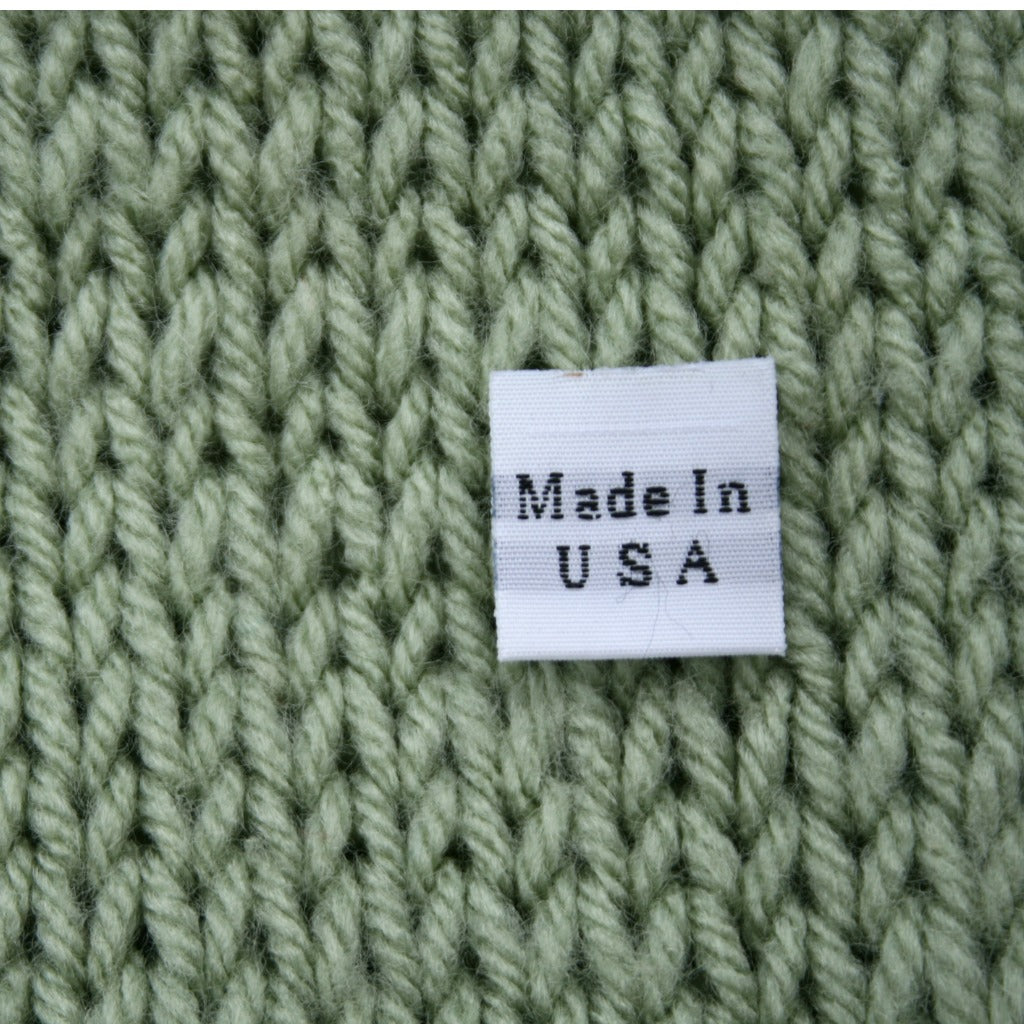
The Hidden Truth Behind the Unethical Fashion Industry in America
BY EMILY DZIEZA
When people hear the terms “fast fashion” or “unethical fashion labor”, right away their minds go to outsourced garments from places such as China or Bangladesh, amongst many other developing countries or poverty-ridden places around the globe. The global fashion industry has exposed the exploitation of workers in sweatshop-like conditions in the past, and consumers from all over the world have taken note of the low-wages and concerning working environments. Many Americans have vowed to shop the “Made in the USA'' label only, without realizing that this does not stop them from supporting sweatshops and the exploitation of workers.
Does the “Made in the USA” Label Matter As Much As We Think?
The definition of a sweatshop is any factory that breaks two or more labor laws, according to the US Department of Labor. These labor laws are set in place to ensure the ethical treatment of factory workers and working conditions, but a lot of the time, factories are able to get away with breaking these rules.
The most prominent violation in garment factories in the USA is the workers being paid below the federal minimum wage and not receiving any overtime pay. In other words, workers putting together pieces of a garment are being paid by the “cut” or by how many products they are able to produce, rather than by the hour or the effort it takes to produce high volumes of clothing items. Factory worker’s days span between 10-12 hours of intensive labor, without getting paid the adequate amount for their work.
In America, about 1.8 million people are employees in the fashion industry. The fashion industry is in no doubt one of the biggest industries, yet the pay gap is huge between people who do physical work and those who work in sales or marketing of the products. Factory workers rarely work a standard 40-hour week and typically work way more overtime in order to make money. Despite there being minimum wage laws in every state, factories usually go by the “pay by piece” system, meaning they go around the minimum wage laws by paying their workers by the number of pieces they make. This leads to workers being paid far below what they should be receiving, which has been said to be around $5 an hour. Many former factory workers in Los Angeles have stated that they would have to work 60-75 hour weeks just to earn $300.
The highest concentration of these violations is found in California and New York, and these factories typically employ immigrants. Los Angeles is the biggest fashion production “hub”, employing over 46,000 factory workers from Mexico and Central America. The stigma around immigrant work is highly visible, and unfortunately, large companies still believe that immigrants are much more easily taken advantage of. When workers are desperate to find jobs to provide for their families, but have language barriers, no social network, lack of education, amongst many other reasons for staying, they will take the harmful reality of sweatshop work in order to make an income. The US Department of Labor raided ten garment factories in the fashion district in Los Angeles, California in 2012 and found that the factories owed nearly $400,000 due to wage and overtime violations. Most of the factory workers were women from Mexico that had major language barriers with the authorities. This comes as no surprise, because over 70% of factory workers in Los Angeles still to this day are immigrants. After another U.S. Department of Labor investigation in 2016, 77 garment companies in the city of Los Angeles were found to be cheating their workers 85% of the time in terms of money. That’s a major hourly wage and overtime gap.
Most factory workers are contractors, meaning they could easily be let go or fired, as manufacturers don’t take into account their workers’ job security, they just want to match production demand. There is no sense of security or benefits, so not only are the workers getting cheated by how much money they make, they also have the thought of losing their jobs lingering in the back of their minds. This was especially apparent during the COVID-19 pandemic, as millions of garment makers did lose their jobs. The workers had no safety nets, and companies had to cancel huge orders of garments not thinking of the impact this would have on the workers in their supply chain.
Turning a Blind Eye
The majority of workers in the fashion industry don’t complain or bring these issues to light for reasons such as fear of deportation, anxiety over losing their jobs, the fear of abuse, or lack of resources. Although there are labor unions and worker retaliation, most workers take the unethical treatment and it is up to the consumer to make decisions about purchasing from various brands in fashion.
The USA is a capitalist hotspot. It would simply be naive to think that the fashion industry in America isn’t willing to compromise quantity for quality. The label is meant to take the consumers’ worries away by slapping on “Made in the USA” and for consumers to turn a blind eye towards the injustices that workers face each day. People believe that places such as China, Vietnam, and India are meant to be the pioneers for fast fashion, America would never. But this is just not so.
The Breakdown: Cost of Product
Let’s think of a scenario where you walk into a store and find a gorgeous $15 jacket you know you’ll be wearing everywhere for the next few months. However, behind the $15 jacket is a $6/an hour worker, working 12 hour days to produce 700 pieces in a Californian factory. The garment factory that the piece came from is not owned by any specific brand, they were just told to produce the jacket, and so they did. The large quantity order was then bought by a big American fashion brand and sold for cheap in their stores, in order to make high revenue since it is so cheap and appealing to consumers. If the pay rate for the workers even slightly increased, the overall cost of the jacket would be much higher. Companies are not willing to compromise their sales for paying factory workers more.
Brands have been quite secretive about what percentage of the price of their garments go to the worker, and from what we know from investigations, it definitely is not a lot. Although there are laws that are meant to ensure workers minimum wage, over 85% of garment factories in California have not abided by the laws. Statements from multiple former garment workers in California stated that the factories they worked for went by the “pay by piece system”, paying them around 3 cents per piece.
Staying Mindful
There are ways that consumers can stay more mindful of their purchases and limit the number of garments that are purchased from sweatshops.
Here are some ways you can stray away from the unethical fashion industry in America:
- Buy green: Green America screens fashion companies to ensure due diligence and ethical treatment.
- Buy union-made: Labor unions have been created to help workers get out of sweatshop conditions.
- Buy sweat-free: Do research on Sweat-Free Shopping Guide from the International Labor Rights Forum.
- Do a bit of research on the items or brands. Don't let the "Made in the USA" tag fool you.
Allégorie is committed to protect the rights of garment workers by exercising strict due diligence on manufacturers we work with. We ensure that our workers are treated fairly, paid fairly and provided with social benefits. To learn more about this, click here.
Sources:
https://www.greenamerica.org/index.php/fair-labor-home/does-made-usa-mean-not-sweatshop
https://www.bls.gov/spotlight/2012/fashion/
https://fashionunited.com/global-fashion-industry-statistics/
https://archive.attn.com/stories/18483/made-america-how-sweatshops-exploit-immigrants-make-your-clothes
https://www.forbes.com/sites/emmajohnson/2015/01/15/the-real-cost-of-your-shopping-habits/?sh=6a95b1ab1452
https://www.nbcnews.com/news/latino/garment-workers-paid-piece-say-they-ll-keep-fighting-change-n1237810
Profile picture by renserafoto, sourced from iStock.
+++++++++++++
About the Writer
Emily is a writer from Chicago, Illinois. Her lifestyle blog focuses on millennial content, ranging from pretty much anything that has to do with beauty, fashion, product reviews, advice and food. As a former Environmental Protection Agency intern, she wants to continue writing more about sustainability and raising awareness for global issues. In her free time, she enjoys trying out new restaurants in Chicago and spending time outdoors. Check out her lifestyle blog here.

